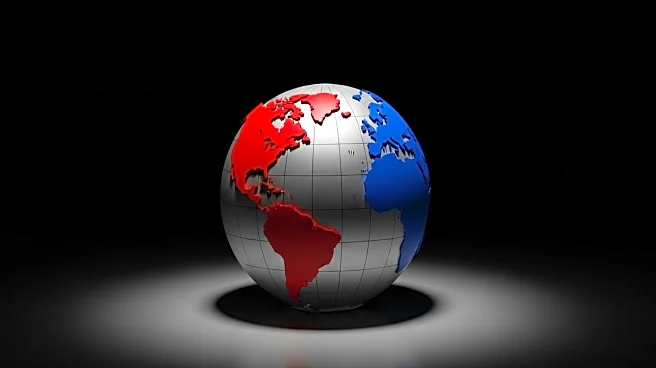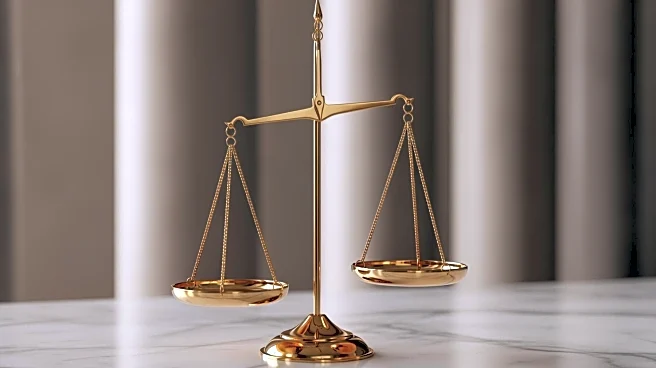What's Happening?
President Trump remarked on a recent military parade held in Beijing, where Russian President Vladimir Putin and Chinese President Xi Jinping were present. Trump noted that the parade was impressive and suggested that the leaders were hoping he was watching. The event marked the 80th anniversary of Japan's defeat in World War II and featured military displays, including strategic nuclear-capable missiles. The parade also included leaders from countries considered adversaries of the U.S., such as North Korea and Belarus. Trump expressed disappointment that Xi did not acknowledge the U.S.'s role in Japan's surrender during his speech.
Why It's Important?
The military parade in Beijing underscores the growing geopolitical tensions involving the U.S., China, and Russia. The presence of leaders from countries like North Korea and Belarus highlights the alliances forming among nations that are often at odds with U.S. policies. Trump's comments reflect ongoing concerns about China's military ambitions and its global influence. The event also serves as a reminder of the complex historical relationships and the current strategic posturing among these global powers, which could have significant implications for international diplomacy and security.
What's Next?
The U.S. may need to reassess its diplomatic strategies and military readiness in response to the show of force by China and its allies. There could be increased diplomatic engagements or military exercises by the U.S. and its allies to counterbalance the perceived threat. Additionally, the U.S. might seek to strengthen its alliances in the Asia-Pacific region to ensure stability and deter aggression.










